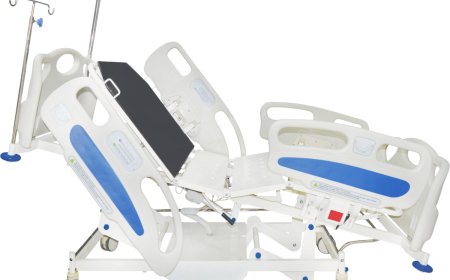Mastering the Art of Capella Assessments: Strategies for Academic and Career Excellence
Take, My, Class, Online

In the rapidly evolving world of online education,Capella University has redefined how students demonstrate learning through its innovative Capella Assessments. Whether youre enrolled in the self-paced FlexPath program or the structured GuidedPath, assessments are the cornerstone of Capellas competency-based learning Capella Flexpath Assessment. Unlike traditional universities that rely on exams, Capella uses detailed, real-world assignments to measure mastery. This article explores how to succeed in Capella Assessments and why theyre so important to both your academic progress and future career.
What Makes Capella Assessments Unique?
Capella Assessments are competency-based evaluations that replace conventional exams, quizzes, or multiple-choice tests. Instead of measuring how well you memorize information, they assess your ability to apply knowledge in real-world scenarios. Each assessment is tied to specific course competencies, ensuring you leave with skills that translate directly into your profession.
Assessments typically come in the form of:
-
Research-based essays
-
Business reports
-
Strategic plans
-
PowerPoint presentations
-
Case study analyses
-
Personal reflection papers
This format allows students to demonstrate not only knowledge acquisition but also critical thinking, communication, and professional application.
Structure of a Capella Assessment
Each Capella Assessment follows a standardized layout, which helps students clearly understand what is expected. The main components include:
-
Introduction/Scenario A context that outlines the background of the task, often simulating a real-world situation.
-
Instructions Detailed guidance on what to write or create, including content, structure, and deliverables.
-
Competencies The skills or knowledge areas you need to demonstrate through your work.
-
Scoring Guide (Rubric) A breakdown of the evaluation criteria, typically graded from "Non-performance" to "Distinguished".
Understanding this format early in the course helps students align their work with expectations and reduces the chances of requiring multiple revisions.
FlexPath vs. GuidedPath: Assessment Differences
While both FlexPath and GuidedPath use assessments, the way students interact with them varies significantly:
-
FlexPath: Entirely self-paced and driven by assessments. Students submit tasks when ready and can complete courses quickly by mastering content.
-
GuidedPath: Includes discussions, deadlines, and instructor-paced activities alongside assessments. Ideal for learners who prefer structure.
Regardless of the format, the quality and completeness of your assessments determine your academic success.
The Importance of the Scoring Guide
Every assessment is evaluated using a detailed scoring nurs fpx 4025 assessment 2. This document outlines what constitutes each performance levelranging from Non-performance to Distinguishedfor every required criterion.
For example:
-
Demonstrates the ability to apply ethical principles in leadership
-
Basic: Attempts to define ethics, but lacks examples
-
Proficient: Clearly explains ethical principles with general application
-
Distinguished: Provides insightful analysis with real-world integration
To succeed, you should aim for Proficient or Distinguished in all criteria. Anything less usually results in feedback and the need to revise and resubmit.
Common Types of Assessments and How to Tackle Them
1. Analytical Essays
These often require research and critical analysis of topics like healthcare policy, business strategy, or education theory.
Tips:
-
Start with a clear thesis
-
Use credible academic sources
-
Follow APA formatting
-
Reference the rubric for each section
2. Project Plans or Reports
These are practical, scenario-based assessments simulating a workplace problem or goal.
Tips:
-
Structure using headings: Executive Summary, Problem Statement, Analysis, Recommendations
-
Use bullet points for clarity
-
Align recommendations with industry standards
3. Presentations
Often submitted as narrated PowerPoint slides or videos.
Tips:
-
Keep slides concise, use visuals
-
Practice narration before recording
-
Address each rubric criterion verbally
4. Reflection Papers
Usually used in early or capstone courses to explore personal growth or learning outcomes.
Tips:
-
Be honest and specific
-
Connect experiences to course competencies
-
Still follow academic tone and structure
Strategies for Success in Capella Assessments
1. Study the Rubric Before You Start
The scoring guide isnt just for gradingits a blueprint for success. Review each criterion before writing and use it to shape your outline.
2. Draft, Edit, Revise
Dont rush to submit your first nurs fpx 4905 assessment 3. Take time to revise your work using:
-
Grammarly for grammar checks
-
Hemingway Editor for clarity
-
Capellas Writing Center resources for APA and structure
3. Use Templates and Resources
Capella provides:
-
APA-style paper templates
-
Sample assessments
-
Library research guides
-
Faculty Q&A sessions
Leveraging these can streamline your process and help avoid formatting pitfalls.
4. Request Feedback
If you're unsure, dont hesitate to reach out to your instructor for formative feedback before submitting. Many faculty are open to reviewing outlines or drafts.
5. Stay Organized
Especially in FlexPath, where there are no weekly deadlines, time management is key. Use tools like:
-
Trello or Asana for task tracking
-
Google Docs for collaborative work
-
Pomodoro timers to stay focused
Benefits Beyond the Classroom
Capella Assessments do more than help you pass coursesthey prepare you for your career. Because each assessment simulates real-life professional scenarios, graduates leave Capella with a portfolio of relevant work to showcase to employers.
Some examples:
-
A counseling student creates treatment plans based on DSM-5
-
An IT student designs cybersecurity response protocols
-
A business student writes strategic proposals for market entry
These deliverables show employers that youve already done the kind of work required in the field.
Overcoming Assessment Anxiety
Its common to feel overwhelmed, especially at the beginning of a program. But remember:
-
You can revise assessments multiple times
-
Capellas support services include coaches, writing tutors, and tech help
-
Each success builds momentum
By approaching assessments as opportunities to build skills, not just assignments to complete, you'll shift your mindset from stress to growth.
Final Thoughts
Capella Assessments are a transformative part of the universitys learning model. They demand critical thinking, real-world application, and a strong sense of personal accountability. But with the right nurs fpx 4000 assessment 4, resources, and mindset, they also offer a clear path to both academic achievement and career readiness.
So, whether you're navigating the open waters of FlexPath or following the structured rhythm of GuidedPath, remember this: every assessment is a step toward becoming the professional you aim to be. Master them, and you're not just earning a degreeyoure building a future.







































